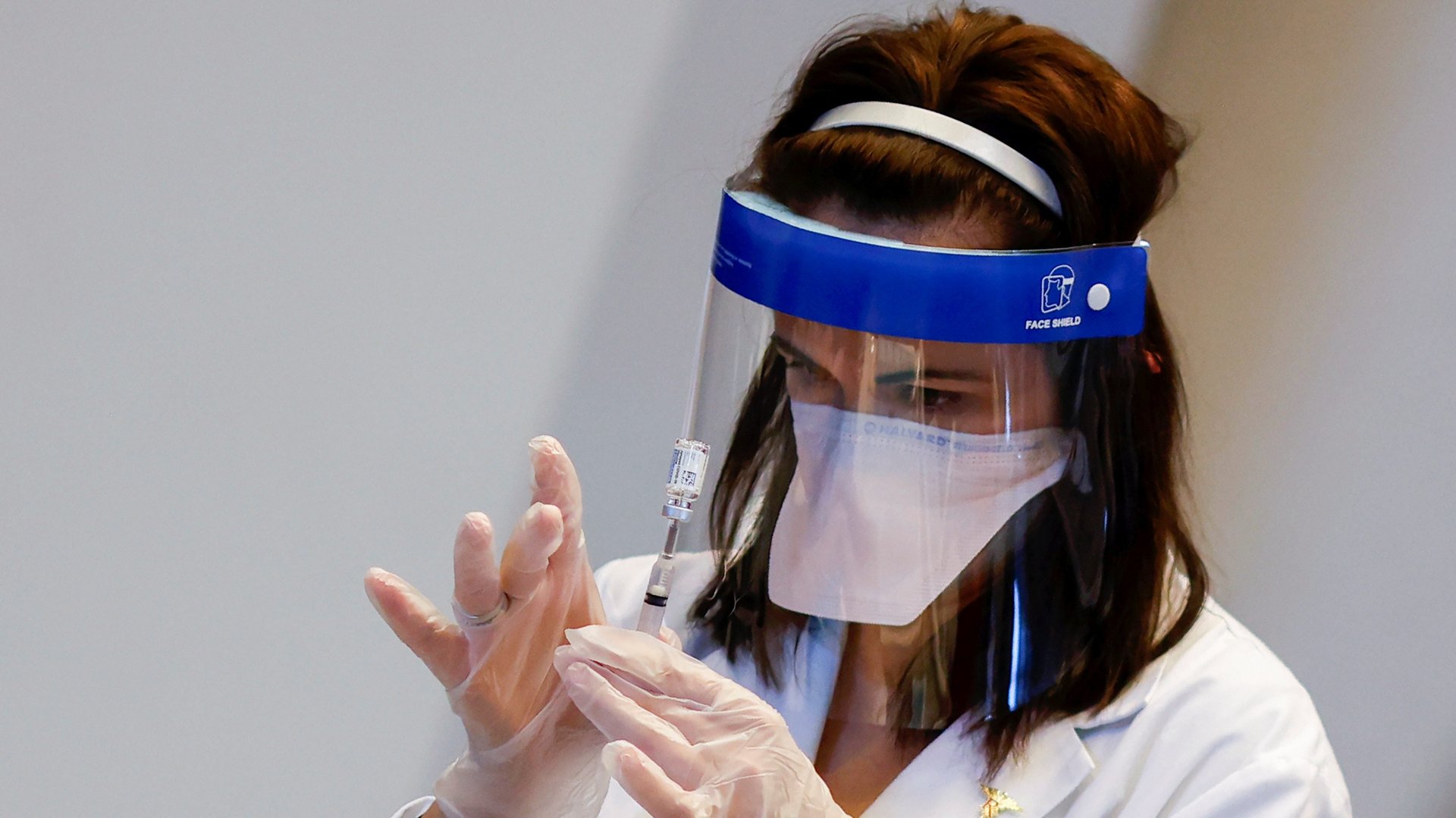Do I need to worry if I had the Johnson & Johnson Covid-19 vaccine?
For millions of adults who have gotten the Johnson & Johnson Covid-19 vaccine, and millions more waiting for the single-dose vaccine, news that the US Food and Drug Administration (FDA) and the US Centers for Disease Control and Prevention (CDC) are recommending a pause on distribution wasn’t the best way to start the day. The agencies’ concerns come after six instances of women, all between the ages of 18 and 60, who had developed rare blood clots near their brains and low platelet counts shortly after getting the shot. One passed away.


For millions of adults who have gotten the Johnson & Johnson Covid-19 vaccine, and millions more waiting for the single-dose vaccine, news that the US Food and Drug Administration (FDA) and the US Centers for Disease Control and Prevention (CDC) are recommending a pause on distribution wasn’t the best way to start the day. The agencies’ concerns come after six instances of women, all between the ages of 18 and 60, who had developed rare blood clots near their brains and low platelet counts shortly after getting the shot. One passed away.
The clinical trial data Johnson & Johnson has provided authorities don’t suggest the vaccines could be linked to these blood clots in any way. This tells us that it must be an exceedingly rare side effect, if it is one at all, because those trials were done on tens of thousands of people. The six women who developed these blood clots that we know of represent a fraction of the people 6.8 million people who have gotten the vaccine so far. The base-rate for these kinds of blood clots is 5 people in 1 million each year, and investigators want to ensure more cases are not being missed.
Shortly after the announcement, the majority of states and the District of Columbia paused their distribution of vaccines. Some are replacing upcoming appointments with the Johnson & Johnson vaccine with doses of the Pfizer-BioNTech vaccines instead. South Africa has also halted the use of Johnson & Johnson vaccines, and the company voluntarily delayed the deployment of its vaccines in Europe. In the meantime, the CDC released a statement saying that anyone who has received the Johnson & Johnson vaccine should go to a doctor immediately if they feel a severe headache, stomach pain, or leg pain—all of which are symptoms of blood clots. (Feelings of fevers of body aches are the expected mild side effects of the vaccine, and should resolve in a few days.)
It’s understandable that that kind of push notification would be alarming—especially after seeing similar events after the AstraZeneca vaccine play out in Europe. Like AstraZeneca, the Johnson & Johnson vaccine also uses a benign cold-like virus to transport in genetic instructions for our bodies to use to create antigens that trigger an immune response. But this kind of pause shows that the drug regulatory system actually works to keep people safer in the long run.
The recommended and voluntary pauses of using the Johnson & Johnson vaccine are a precaution. They’re relatively common in the world of vaccines and other drugs that have recently been authorized. It gives researchers and regulators a chance to investigate what they call “safety signals” to figure out what may be going on. The CDC’s advisory group on vaccines is meeting on April 14 to discuss these findings, while the FDA is once again combing through the data Johnson & Johnson submitted to it. Already, some researchers have started publishing work based off similar events connected to the AstraZeneca vaccine that suggest how this class of vaccines could lead to these adverse events, which could illuminate how to treat or prevent them.
It’s likely that the US federal agencies will release statements about the safety of Johnson & Johnson’s Covid-19 vaccine before the week is over. These shots have been a key component of US president Biden’s plan to vaccinate enough Americans in time to celebrate the 4th of July.